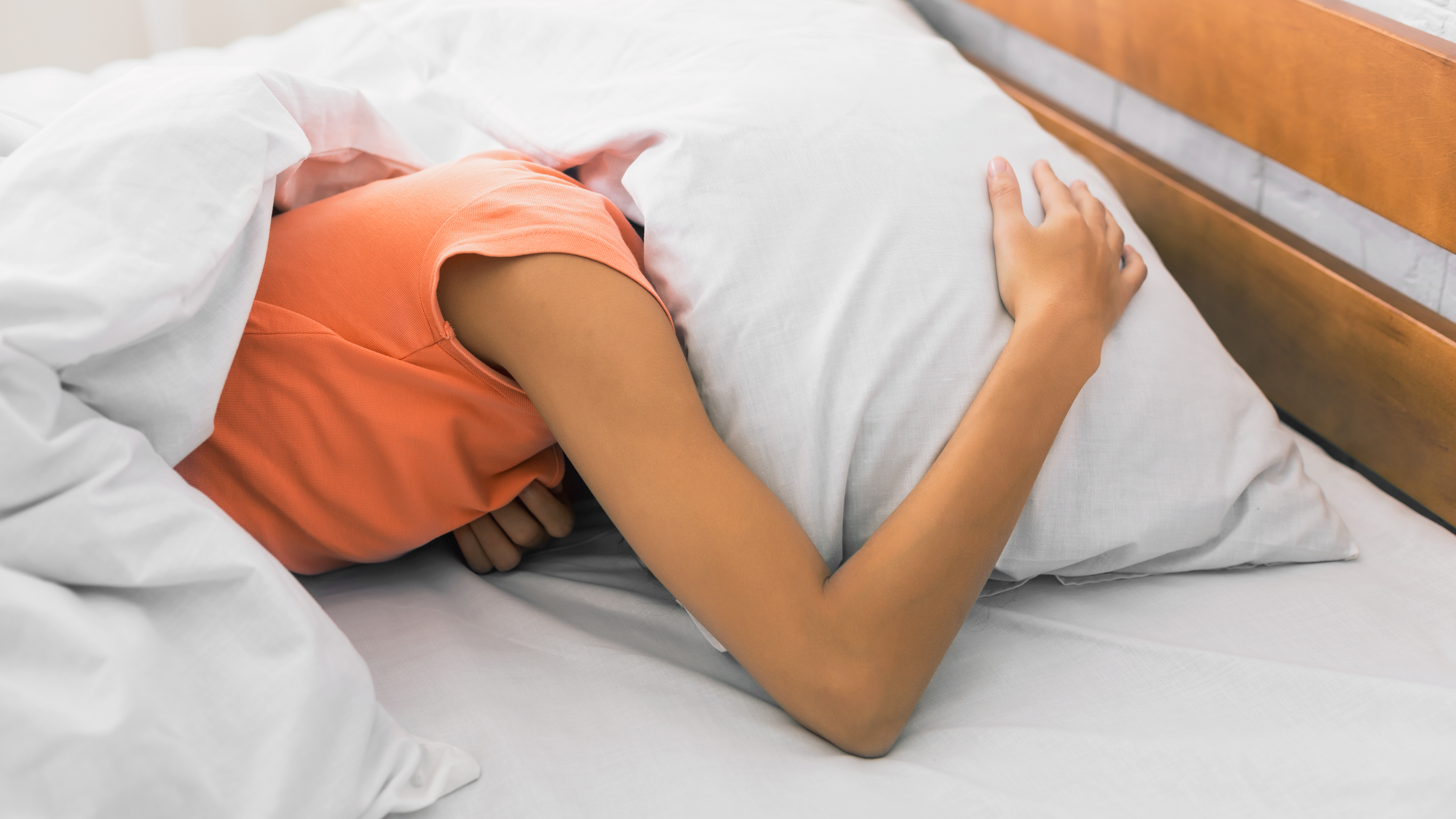14 Sneaky Reasons You’re Still Tired After 8 Hours of Sleep
In today's fast-paced world, fatigue is a common complaint. Despite getting a full night's rest, many people wake up feeling tired and sluggish. This lingering fatigue is not just an inconvenience; it can significantly impact daily productivity and overall well-being. Understanding the subtle culprits behind this persistent tiredness is crucial for addressing the problem effectively. This article delves into 14 often-overlooked factors that contribute to lingering fatigue, despite adequate sleep. By exploring these elements, we aim to provide a comprehensive understanding of why rest alone may not be enough and how to tackle this pervasive issue.
1. Sleep Quality vs. Sleep Quantity

While the number of hours spent sleeping is often the focus, the quality of sleep plays a crucial role in how rested we feel. Sleep is composed of various stages, including REM and deep sleep, each serving different restorative functions. Disruptions in these stages, even if brief, can prevent the body from achieving the rest it needs. Factors like sleep apnea, restless leg syndrome, or even an uncomfortable mattress can affect sleep quality. Addressing these issues is essential for ensuring that the hours spent in bed translate to genuine restfulness, rather than just time passed.
2. Stress and Its Invisible Chains

Stress is an insidious factor that can severely disrupt sleep patterns. Chronic stress leads to elevated levels of cortisol, a hormone that can interfere with the sleep cycle. The body's natural rhythm is thrown off balance, making it difficult to fall and stay asleep. Even if sleep is achieved, the mind may remain active, preventing deep, restorative rest. Techniques like mindfulness, meditation, and cognitive behavioral therapy can help manage stress levels, potentially improving sleep quality and reducing fatigue.
3. The Role of Diet in Sleep Health

Diet is a fundamental, yet often overlooked, component of sleep health. Consuming caffeine or sugar close to bedtime can hinder the ability to fall asleep or achieve deep sleep. Meanwhile, a lack of essential nutrients, such as magnesium and vitamin D, can also impact sleep quality. Establishing a diet rich in whole foods, with a focus on balance and timing, can create a more conducive environment for restful sleep. Understanding the relationship between food and sleep can lead to healthier habits that combat fatigue.
4. Hidden Medical Conditions

Various medical conditions can contribute to feelings of fatigue, even after a full night's rest. Thyroid disorders, anemia, and diabetes are just a few examples of health issues that can impact energy levels. These conditions often have subtle symptoms that may go unnoticed until fatigue becomes pronounced. Regular medical check-ups and blood tests can help identify underlying health issues, allowing for timely intervention and management. Addressing these conditions can significantly improve energy levels and overall quality of life.
5. The Impact of Mental Health

Mental health is intricately linked to sleep quality and energy levels. Conditions such as depression and anxiety can lead to disrupted sleep patterns and persistent fatigue. The mind's constant state of alertness or distress can prevent the body from achieving the deep rest it requires. Seeking professional help, whether through therapy or medication, can be a crucial step in addressing mental health issues. By improving mental health, individuals may find a marked improvement in their sleep quality and daytime energy levels.
6. The Influence of Technology

The omnipresence of technology in our lives can have a detrimental effect on sleep quality. The blue light emitted by screens can interfere with the production of melatonin, a hormone that regulates sleep. Additionally, engaging with stimulating content before bed can keep the mind active, delaying the onset of sleep. Establishing a bedtime routine that involves disconnecting from screens at least an hour before sleep can help mitigate these effects. Creating a tech-free sleep environment can promote better rest and reduce fatigue.
7. Exercise: The Double-Edged Sword

Exercise is vital for maintaining health and promoting good sleep, but timing and intensity matter. While regular physical activity can enhance sleep quality, exercising too close to bedtime can have the opposite effect. The body's heightened state of alertness post-exercise can make it difficult to wind down. Finding the right balance and timing for exercise is key. Morning or early afternoon workouts can boost energy levels throughout the day and contribute to more restful sleep at night.
8. The Consequences of Dehydration

Dehydration is a common, yet frequently overlooked, cause of fatigue. Even mild dehydration can lead to feelings of tiredness and reduced cognitive function. The body's systems require adequate hydration to function optimally, including those responsible for sleep regulation. Ensuring sufficient water intake throughout the day can help maintain energy levels and improve sleep quality. Simple habits like carrying a water bottle and setting hydration reminders can make a significant difference in combating fatigue.
9. Environmental Factors

The sleep environment plays a crucial role in determining sleep quality. Factors such as room temperature, noise levels, and light exposure can all impact the ability to fall and stay asleep. Creating a sleep-friendly environment involves optimizing these elements to suit individual preferences. Blackout curtains, white noise machines, and adjustable thermostats can help create a more conducive setting for rest. Paying attention to the sleep environment can lead to more restorative sleep and reduced fatigue.
10. The Role of Hormones

Hormonal imbalances can significantly affect energy levels and sleep quality. Conditions such as menopause, pregnancy, and menstrual cycles can lead to fluctuations in hormones that impact sleep. Understanding these changes and seeking appropriate medical advice can help manage their effects. Hormone replacement therapy or lifestyle adjustments may be necessary to restore balance and improve sleep. Recognizing the role of hormones in sleep health is crucial for addressing fatigue effectively.
11. The Influence of Medications

Certain medications can have side effects that interfere with sleep and energy levels. Common culprits include antihistamines, antidepressants, and blood pressure medications. These drugs can alter sleep patterns or cause drowsiness, contributing to fatigue. Consulting with a healthcare provider about these side effects can lead to adjustments in medication or alternative treatments. Being informed about how medications impact sleep can empower individuals to take control of their health and energy levels.
12. The Impact of Alcohol and Nicotine

Substances like alcohol and nicotine can have a profound effect on sleep quality. While alcohol may initially induce drowsiness, it disrupts the sleep cycle, leading to poor-quality rest. Nicotine, a stimulant, can make it difficult to fall asleep and stay asleep. Reducing or eliminating the consumption of these substances, particularly close to bedtime, can improve sleep quality and reduce fatigue. Understanding the effects of these substances is essential for making informed choices about lifestyle habits.
13. The Role of Sleep Disorders

Sleep disorders such as insomnia, sleep apnea, and narcolepsy can lead to persistent fatigue, despite adequate sleep duration. These conditions often require professional diagnosis and treatment to manage effectively. Sleep studies and consultations with sleep specialists can provide insights into the nature of these disorders. Addressing sleep disorders is a critical step in overcoming fatigue and improving overall quality of life. Recognizing the signs and seeking help can lead to significant improvements in restfulness.
14. The Power of Routine

Establishing a consistent sleep routine is vital for promoting good sleep hygiene. Irregular sleep patterns can disrupt the body's internal clock, leading to feelings of fatigue. Going to bed and waking up at the same time each day, even on weekends, can help regulate sleep cycles. Incorporating relaxing pre-sleep rituals, such as reading or taking a warm bath, can signal to the body that it's time to wind down. A well-established routine can enhance sleep quality and reduce fatigue over time.
A Holistic Approach to Combat Fatigue

Addressing lingering fatigue requires a holistic approach that considers multiple factors influencing sleep and energy levels. By understanding and addressing the subtle culprits discussed, individuals can take proactive steps towards improving their sleep quality and overall well-being. It is essential to recognize that fatigue is not merely a result of insufficient sleep but a complex interplay of various elements. By adopting a comprehensive strategy, including lifestyle adjustments, medical consultations, and mindfulness practices, the battle against fatigue can be won, leading to a more energized and fulfilling life.
